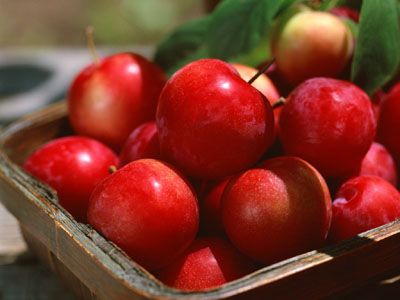How can we eat fruit scientifically? Chen Chaogang, director of clinical nutrition at Sun Yat-Sen Memorial Hospital of Sun Yat-Sen University, said that if you can grasp the following six principles, you can eat fruits healthy and feel the benefits of fruits.
1 Keep 1-2 servings (about 200 grams per serving) per day

"An apple a day, the doctor is away from me." This is a well-known health advice. In fact, in addition to apples, eating any kind of fruit every day is also very beneficial to human health. Chen Chaogang said that fruits contain the human three treasures, also known as three "prime", namely, vitamins, trace elements (minerals), cellulose, these nutrients not only promote health, but also can prevent certain cancers and many diseases, fruits also contain Many other active ingredients are good for health and prevent diseases. Studies in Australia have found that eating citrus fruits such as mandarin oranges, oranges, and oranges can reduce the incidence of cancer in the oral cavity, throat, intestines and stomach by 50%, reduce the incidence of stroke by 19%, and at the same time cause cardiovascular diseases, obesity, and Diabetes also has a certain preventive effect.
Therefore, for the sake of health, it is best to keep 1-2 servings (about 200g per serving) of fruit intake each day.
2 eat between meals
When is it good to eat fruit? Is it before or after the meal? In fact, fruit is a snack and it is best to eat between meals. And if you want to lose weight, you can eat some fruit 20-40 minutes before the meal, so as to prevent obesity caused by eating too much. Fruit generally has lower calories. Eat fruit before meals, which are rich in fructose and glucose, can be quickly absorbed by the body to meet the body's energy "urgency", the fruit of crude fiber can also make the stomach have a sense of fullness, which can reduce food intake for dinner .
3 Eat as much seasonal fruit as possible
At present, many people think that eating more seasonal fruits, and anti-seasonal fruits should eat less. In fact, although some anti-seasonal fruits are ripened and preserved with some chemicals, there will be some negative effects on the human body, especially infants and young children. The impact, but many anti-seasonal fruits, is not necessarily a product of the greenhouse, which also has products from the south, or even products from abroad. For example, in Hainan, fruits and vegetables can be produced all year round. In fact, there is no seasonal issue, and its nutritional value may not necessarily be lower than seasonal products in the north. Therefore, as long as a reasonable choice can be eaten regularly, it will have greater health benefits than not eating fruit.
4 Cannot replace vegetables or staple foods with fruits
Some people think that eating fruits and vegetables will not gain weight, so eat special foods, and even use fruits instead of vegetables or staple foods. The content of minerals and vitamins contained in fruits is generally less than that of vegetables, and the two kinds of cellulose are different. If you do not eat vegetables, relying on fruits alone is not enough to provide enough nutrients.
In addition, most fruits have more than 85% moisture content, and their protein content is very low. At around 1%, they are almost free of essential fatty acids, which is far from meeting the human needs for protein and fat. Therefore, fruits can only be used as nutritional supplements and cannot be used as staple foods.
5 fruits with high sugar content, should not eat too much at one time
(1) Tomatoes with 2% sugar content in low-sugar fruits;
(2) watermelon, cantaloupe sugar 4%-5%;
(3) Grapes, cherries, oranges, oranges, clams, pears, peaches, plums, pomegranates, lemons, grapefruits, bayberry, apples, pineapples, etc. all contain about 8% to 12% sugar.
(4) Bananas, longans, lychee, persimmons, and coconuts contain sugar at 14%-20%.
Eating or mad eating fruit with high sugar content will make you gain weight! Therefore, Chen Chaogang believes that it is better to use less than 10 grams of sugar per 100 grams of fruit: watermelons, oranges, grapefruits, peaches, plums, pineapples, strawberries, tomatoes, etc. These fruits can provide 20 per 100 grams. - 40 kilocalories of energy, such as litchi, longan, durian, etc. These fruits will not increase the body's excessive calories and can eat more. For other fruits with high sugar content, be careful not to eat more.
6 choose the right fruit according to the condition
Different patients also pay attention to eating fruit. People with diabetes should eat less fruits such as bananas, lychee, longan, jujube, etc., with higher sugar content, but apples, oranges, oranges, grapefruits, tomatoes, and other fruits with medium or low sugar content can be selected.
Patients with myocardial infarction should not eat apples, persimmons, lotus seeds and other fruits containing more tannic acid, so as to avoid a strong convergence, increase constipation, resulting in repeated attacks of the disease.
Patients with hepatitis eat more oranges and fresh dates and other fruits containing more vitamin C, is conducive to the treatment and recovery of hepatitis.
Often dry stools, you can eat more peaches, bananas, oranges, etc., because these fruits have a higher cellulose content, persimmons contain a large amount of persimmon, eating more can increase constipation.
Basket Stretcher,Basket Type Stretcher,Rescue Basket Stretcher,Emergency Basket Stretcher
jiangyin chenyi medical technology co.,ltd , https://www.chenyimed.com